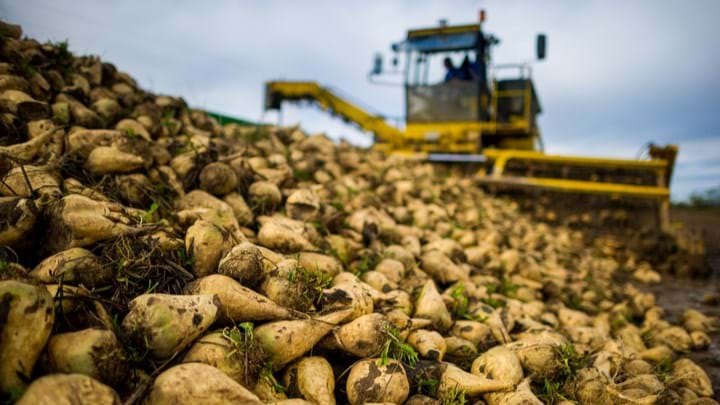Sugar beet could kickstart Scottish bioeconomy

Economic analysis recommends a single facility in Dundee or Grangemouth
GROWING sugar beet in Scotland and processing it at a new biorefinery could help the country become self-sufficient in bioethanol production, creating new jobs and safeguarding existing ones in the chemicals sectors, according to a new economic analysis.
The report from the Industrial Biotechnology Innovation Centre and Scottish Enterprise follows crop trials conducted in 2020. The analysis finds that Scotland could grow enough sugar beet as a rotation crop to feed a profitable plant that could produce the 170m L of bioethanol needed to meet its own demands. In September, the UK Government doubled the proportion of ethanol required in UK petrol to 10%. It is estimated that the UK requires 1.7bn L of ethanol for blending but only has three bioethanol plants with a combined production capacity of 890m L, and all are based in England. A new plant would reduce reliance on ethanol imports from Europe and help save 280,000 t/y of CO2.
The economic study recommends growing the sugar beet centrally on the east coast of Scotland rather than over a wide area, and says that bioethanol production is most cost-effective if done at a single large site at scale. It found that the optimal locations for a new biorefinery are either in Dundee due to its proximity to the agricultural land, or the industrial hub of Grangemouth for its access to existing utilities, water treatment, chemical plants and a major port.
Growing sugar beet on a large scale would create new jobs through opportunities for agriculture, and provide a sugar-based feedstock to help accelerate the growth of Scotland’s industrial biotechnology sector while reducing the use of fossil feedstocks by displacing traditional chemical production routes. This includes dehydrating ethanol to produce ethylene, the world’s most produced chemical, and its derivatives; as well as providing a bio-based feedstock for production of other chemicals used in pharmaceuticals, surfactants, solvents and food additives.
This article is adapted from an earlier online version.
Recent Editions
Catch up on the latest news, views and jobs from The Chemical Engineer. Below are the four latest issues. View a wider selection of the archive from within the Magazine section of this site.




